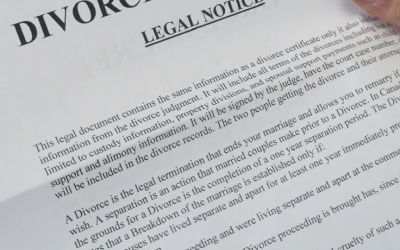
Divorce in Dubai for Indians in 2025: Legal Process & Custody Rights
Table of Contents ▼
Handling a divorce is complicated and emotionally taxing, and the process can feel even more overwhelming when done abroad, such as in Dubai.
Indian nationals must familiarize themselves with the legal system to manage divorce in Dubai for Indians smoothly.
How Indian Nationals Begin Divorce Proceedings in Dubai
The first step for Indian nationals filing for divorce in Dubai is submitting an application to the Family Guidance Section of Dubai Courts. Muslim expatriates divorce according to Sharia Law, while non-Muslims can invoke their home country’s personal laws under Federal Law No. 28 of 2005, which enables non-citizens to request this option.

This step is required for both Muslim and non-Muslim expatriates, including Indian nationals, as it aims to facilitate reconciliation before the divorce case proceeds further.
Required Documents
Essential documents for divorce in Dubai for Indians include a marriage certificate translated into Arabic if it’s not already. Both spouses’ passports and visas must be submitted, and children’s passport and visa details if there are any. Once these are provided, the Family Guidance Section appoints a conciliator to commence mediation.
Mediation and Conciliation Process
Mediation plays a key role in divorce in Dubai for Indians. The conciliator assists the couple in reaching agreements on custody, finances, and disputes before the court steps in. Legal counsel is not permitted during mediation to ensure impartiality. If no settlement is reached, a referral letter is issued to proceed to court.
Court Proceedings for Divorce
If mediation does not resolve the issues, the case moves forward to court. Both spouses will present their evidence and legal positions. The court will rule on divorce matters such as custody, financial obligations, and asset distribution.

Evidence Presentation: Evidence including financial records and witness testimony must be provided by each party.
Legal Representation: Legal counsel is permitted in court proceedings. It’s recommended to hire a family law expert familiar with UAE laws, particularly for contested divorces.
After hearing the case, the court will issue a ruling on the divorce.
Choosing Between UAE Law or Indian Law for Divorce in Dubai for Indians
For Indian nationals filing for divorce in Dubai, there is a choice to follow either UAE law or Indian law, depending on their unique circumstances.
Divorce Under UAE Law
With mutual consent, divorce proceedings can be conducted under UAE law with Dubai courts handling the case. This route is commonly taken by Indian nationals for divorce in Dubai for Indian.

Divorce Under Indian Law
Alternatively, couples may choose Indian law and file for divorce at the Indian consulate in the UAE. It’s wise to seek advice from a lawyer familiar with both UAE and Indian family laws to ensure correct procedures are followed.
Financial Matters and Alimony
When Indian nationals file for divorce in Dubai, financial issues like alimony and property division are carefully addressed. Monthly alimony may be ordered to support the financially dependent spouse, with amounts based on the duration of marriage, financial inputs, and the lifestyle enjoyed.
The court aims to divide joint assets and property fairly between both spouses.
Child Custody
In divorce in Dubai for Indians, the court gives precedence to the welfare of the child when ruling on custody. Mothers generally receive custody of younger children, while fathers get visitation rights. The court also considers education, emotional needs, and the child’s relationship with each parent.
Finalizing the Divorce
After custody, alimony, and asset matters are settled, the divorce is finalized. Indian nationals receive a divorce certificate in Dubai, which is essential for updating marital status in legal documents.
Guidance for Indian Nationals Filing for Divorce in Dubai
For divorce in Dubai for Indian nationals, all essential documents must be translated into Arabic to satisfy UAE court requirements. Engaging an experienced UAE divorce lawyer is advisable, especially when handling disputes about property, finances, or custody.
Mediation is a required stage before court involvement. The court prioritizes the child’s welfare, generally awarding custody to mothers and considering alimony. Understanding enforcement of rulings on overseas assets is necessary.
Conclusion
The journey of divorce in Dubai for Indians can be made much smoother with the right knowledge and legal help.
Easy Wedding guides you through the divorce process, whether under UAE law or Indian law, ensuring fairness and clarity.
If you’re looking for hassle-free divorce services in Dubai, our expert team is ready to assist. We also provide support for Indians seeking court marriages here.


